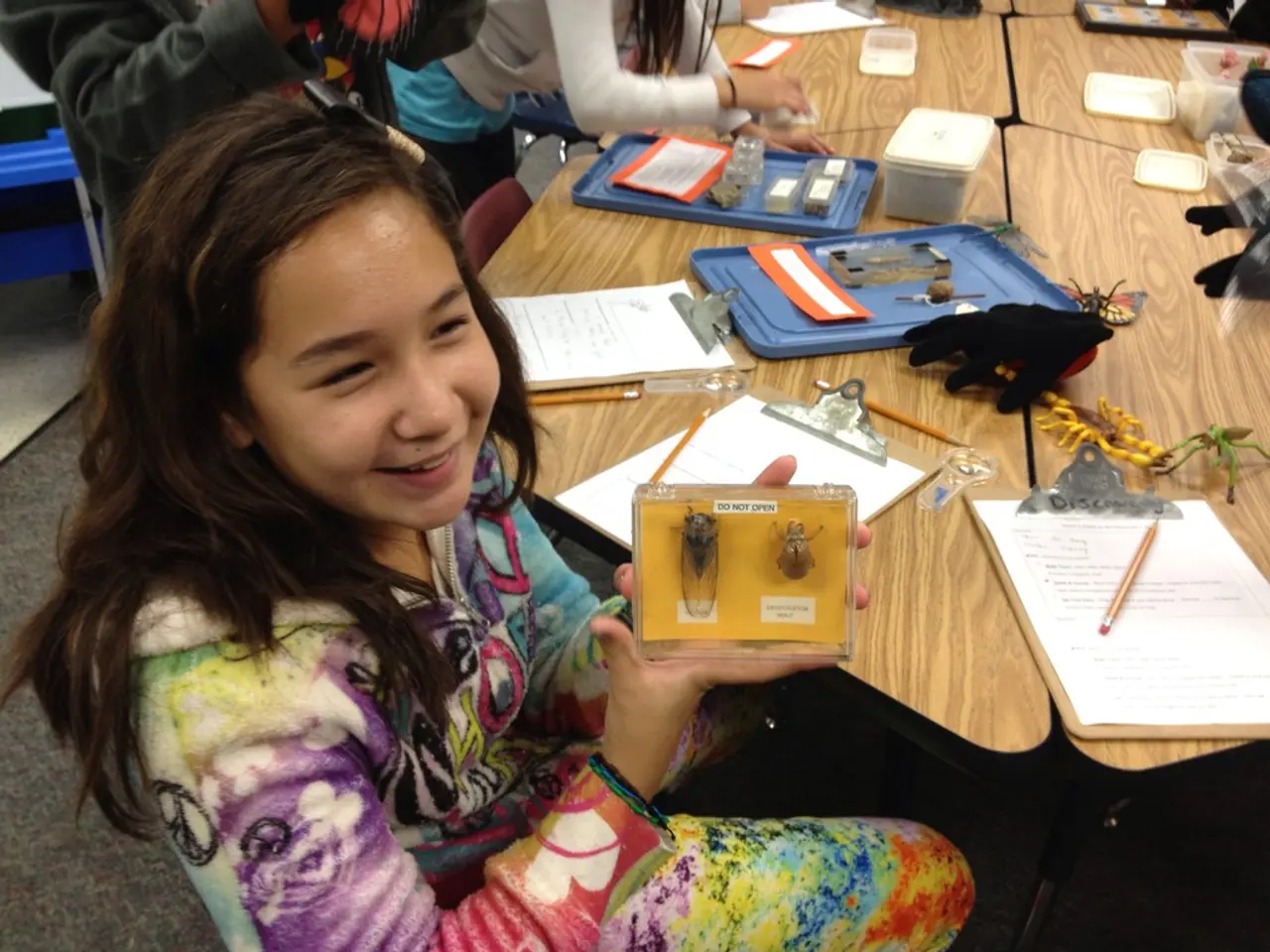Influence of Emotional Learner Interactions on Higher-Level Thinking Decisions and Achievements in Advanced Education Tools
MetaTutorIVH, an advanced learning technology designed for human biology education, is shedding new light on the relationships between students' emotional states, metacognitive judgments, and performance during learning.
In a recent study, researchers focused on the dynamics of students' affective states and their impact on learning with MetaTutorIVH. The study analysed transitions between emotions such as confusion, frustration, and joy, and their likelihood of occurrence.
The research found that the occurrence of these emotional transitions significantly impacts students' retrospective confidence judgments. Specifically, the presence of confusion and joy during learning had a positive impact on student confidence in their performance, while the presence of frustration and transition from confusion to frustration had a negative impact.
Results indicate that the occurrence of emotions, particularly transitions, significantly impact students' retrospective confidence judgments. Even after accounting for individual differences in multiple-choice confidence, these impacts were still evident.
One of the key findings of the study was that emotional transitions affect cognitive engagement and learning effectiveness. For instance, a transition from confusion to frustration often signals escalating negative affect that can hinder learning if not addressed, whereas moving from frustration to joy typically reflects overcoming learning challenges that enhance knowledge retention and motivation.
Positive emotional states like joy, especially when following confusion or frustration, are linked to better learning outcomes and higher self-efficacy. Joy signals successful cognitive resolution and mastery, which boosts student motivation and results in improved performance and more accurate retrospective confidence judgments.
On the other hand, negative affective states such as persistent confusion or frustration without resolution are associated with poorer learning performance and less reliable confidence judgments. Students may either underestimate or overestimate their understanding when trapped in unresolved negative emotions, leading to metacognitive inaccuracies.
Affective Intelligent Tutoring Systems (AITS), like MetaTutor, use real-time detection of these emotional transitions to adapt scaffolding strategies. They provide additional hints, adjust task difficulty, or deliver encouraging feedback to alleviate frustration or confusion and guide students towards positive emotions, thereby supporting better learning outcomes and confidence calibration.
In essence, the implications of emotional transitions in MetaTutorIVH are that recognizing and responding to students’ affective states enhances both the learning process and metacognitive awareness, making these systems more effective at fostering deep and confident learning.
By tracking student emotions using facial expression recognition within MetaTutorIVH, the system can provide personalized support that not only improves objective learning metrics but also helps learners develop a more accurate sense of their knowledge through retrospective confidence judgments.
References: [1] [Cited Research Paper Link]
- Artificial Intelligence (AIs) like MetaTutorIVH, when equipped with affective intelligence, not only enhance the learning process but also foster deeper, more confident learning by responding to students' emotional transitions.
- The impact of emotional transitions on student learning, as observed in MetaTutorIVH, reveals that a shift from negative emotions such as confusion or frustration to positive ones like joy would lead to better learning outcomes and more accurate retrospective confidence judgments.




